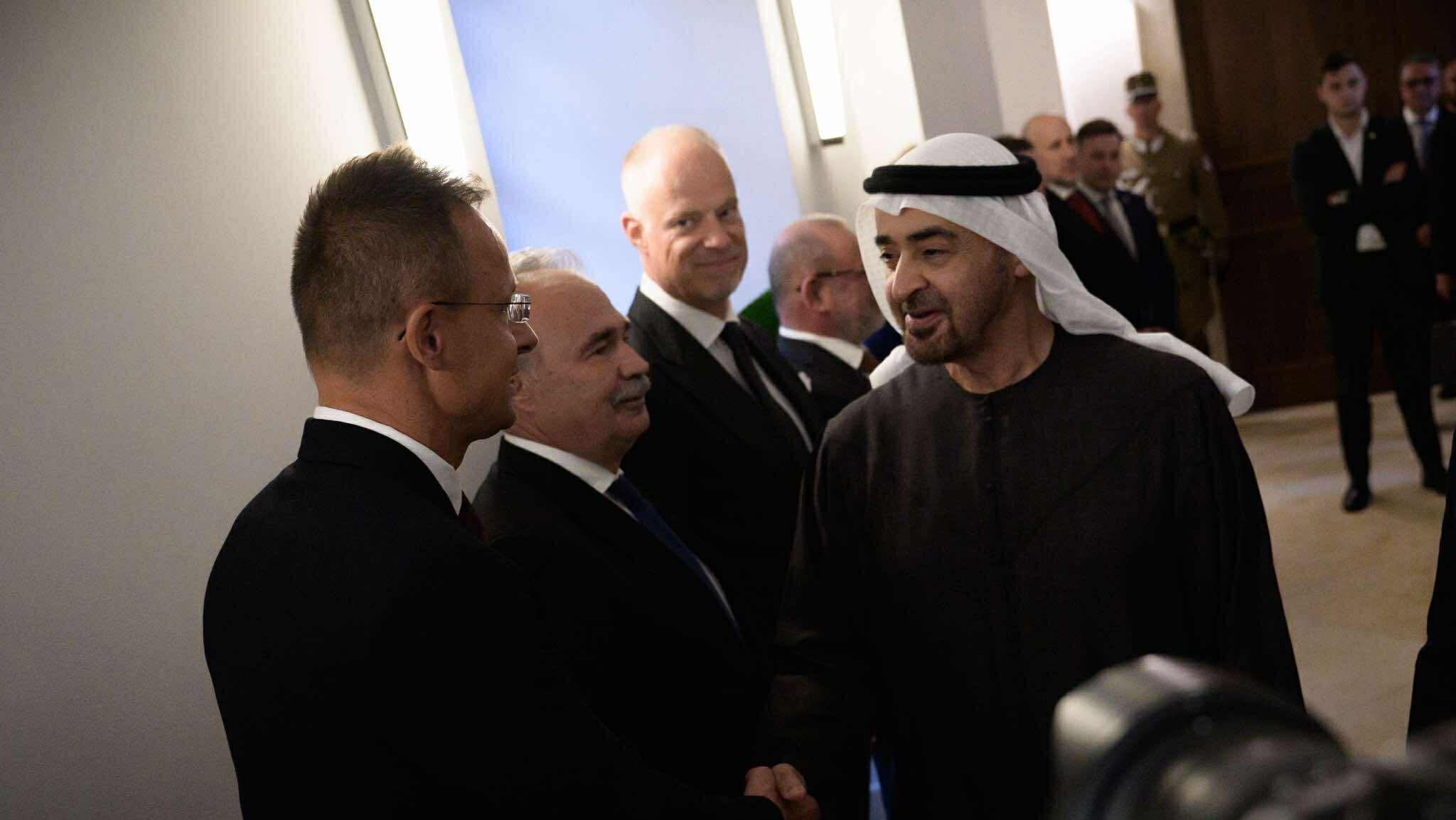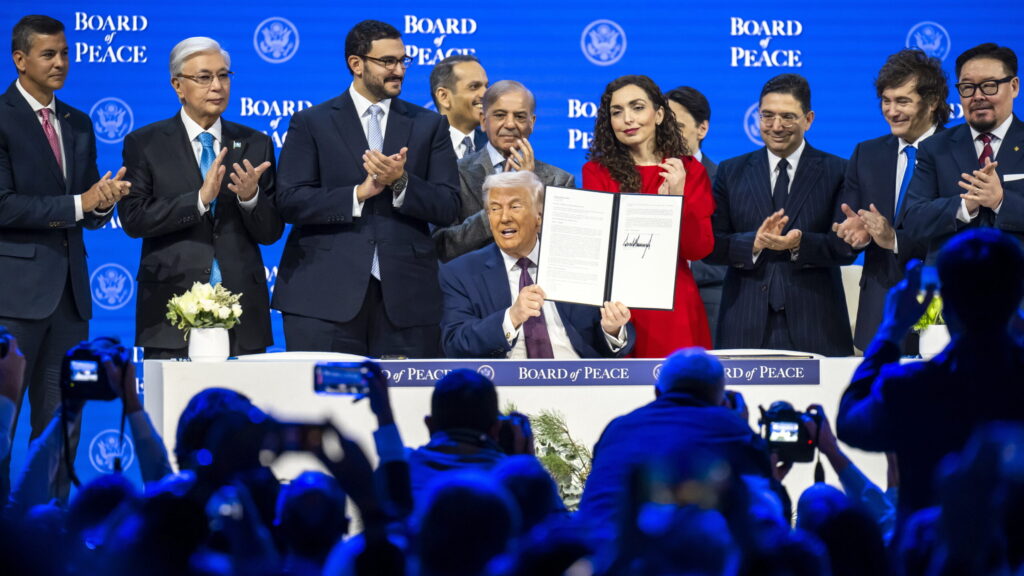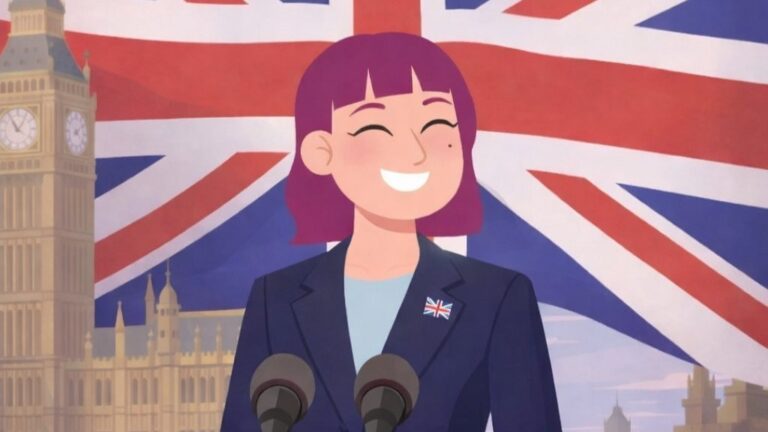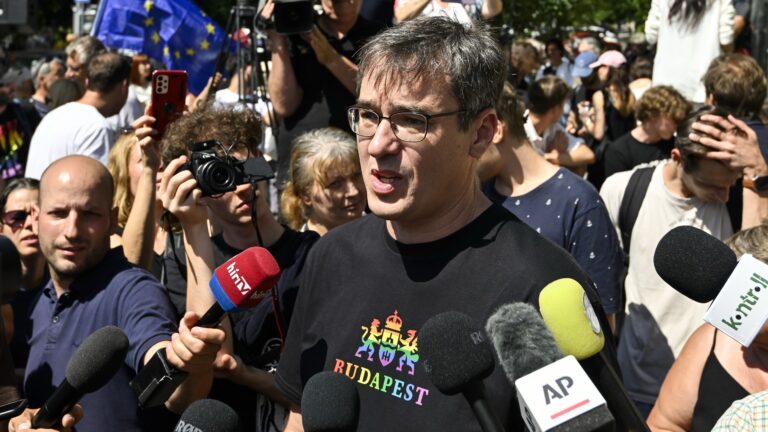The official visit of the President of the United Arab Emirates, Sheikh Mohammed bin Zayed Al Nahyan, in mid-July marks a significant milestone in the relations between Hungary and the United Arab Emirates. The event presented new opportunities between Abu Dhabi and Budapest, with the signing of 14 agreements in the fields of energy, agriculture, the food industry, defence, telecommunications, and new technologies.
Historical Moment
Diplomatic relations between Hungary and the United Arab Emirates began immediately after the regime change in Hungary in 1990. The first Hungarian embassy was opened in the UAE in 2006, but the first embassy of the United Arab Emirates in Hungary was not established until 2018.
In recent years, relations between Middle Eastern and Central European countries have become increasingly close in the fields of investment, renewable energy, education, and technological cooperation. Under the ‘Eastern Opening’ policy of Prime Minister Viktor Orbán, ties were significantly strengthened with non-Western countries, leading to a fruitful relationship with the Western-friendly United Arab Emirates.
At the beginning of the 2020s, relations between the two countries showed significant development, as Péter Szijjártó visited the Gulf country and reported on the signing of several agreements to boost bilateral cooperation and provide Hungarian businesses with opportunities to enter the United Arab Emirates’ market. At that time, the most significant agreement was with the Hungarian lighting company Tungsram, which established a subsidiary in Abu Dhabi and constructed a $4 million plant with support from the Hungarian government.
Cooperation was also expanded by establishing a joint business council, which included companies operating in both countries. Furthermore, the UAE’s—and the Arab world’s—first nuclear power plant project at that time also allowed Hungary to deepen its cooperation with the Gulf country, as Hungary’s more than 30 years of experience with nuclear power and safety provided an opportunity to advance energy cooperation.
Declining Competitiveness of the European Union
With the escalation of the Ukrainian–Russian conflict, the importance of energy has increased, and the need for diverse energy sources has become one of the most crucial goals for Russia, a country heavily reliant on energy.
As Minister of Foreign Affairs and Trade, Péter Szijjártó elaborated at the beginning of the year during his visit to Abu Dhabi: ‘The competitiveness of the European Union has dramatically decreased in recent times, while the Gulf region’s competitiveness has improved dynamically. Therefore, it is in the European Union’s interest to establish the closest possible cooperation with the Gulf region.’
This visit brought closer cooperation in areas such as oil and gas extraction, energy, and renewable energy development. Both sides also expressed their commitment to strengthening partnerships in the banking sector, digital technology, telecommunications, and the defence industry. Péter Szijjártó also emphasized that cooperation in the food industry is expected to continue growing in the coming years.
The current visit of Sheikh Mohammed bin Zayed Al Nahyan contributed to deepening this commitment and taking actual steps to make these ideas a reality. The agreements signed recently include three with the global investment company Mubadala, exploring common investment opportunities. Agreements between the Ministry for Energy, the Ministry of Investment of the Emirates, and the company Masdar led to closer cooperation in the areas of green and renewable energy.
Growing Investment
In mid-2024, Hungary and the United Arab Emirates signed an economic agreement for a €5 billion rehabilitation project in Budapest, marking a milestone in the UAE’s investment in Hungary. Under the project, ‘the abandoned industrial area around the Rákosrendező train station and rail yard in the city’s north will be transformed into a new city quarter with tourism, economic, business, and sport functions,’ said Péter Szijjártó at the press conference after signing the cooperation.
‘In mid-2024, Hungary and the United Arab Emirates signed an economic agreement for a €5 billion rehabilitation project in Budapest’
Bastion of Stability
The mutual understanding of the migration crisis provided a solid basis for deepening relations between Hungary and the United Arab Emirates during the crisis that began in 2015. Back then, the Hungarian Minister of Foreign Affairs and Trade emphasized that Europe was defenceless, and this state of defenselessness must be ended, as Turkey would not be able to handle the immigration crisis alone. He also noted that Hungary and the UAE share the opinion that they must help those affected stay as close as possible to their countries of origin, so they can return home as soon as possible after the armed conflicts are over. As a result of this shared view, the Hungarian government signed a security cooperation agreement with the United Arab Emirates in 2018 to promote the fight against terrorism.
The UAE, as one of the most stable countries in the Middle East, plays a crucial role in maintaining peace and shaping the region’s political landscape. Already in 2020, Minister Szijjártó highlighted that the United Arab Emirates is one of the most pro-peace countries in the region, following the normalization of its diplomatic ties with Israel. At that time, Péter Szijjártó argued that the more peaceful and stable the region was, the less likely Europe would be to come under pressure from migrants fleeing the area.
‘The government “has been able to act as a moderating force not only in the Gulf region and the Middle East but in various parts of the world”’
During his visit in May 2023, Péter Szijjártó expressed his appreciation for the UAE’s efforts to fight for stability in the region, stating: ‘In the current state of affairs in the world, such pro-peace politicians as the UAE’s foreign minister are much needed.’
At the beginning of the year, as recent years brought more conflict in the region and internationally, Péter Szijjártó emphasized the need for countries that can play a stabilizing role. Referring to the United Arab Emirates, he stated that the government ‘has been able to act as a moderating force not only in the Gulf region and the Middle East but in various parts of the world in efforts to resolve or ease violent or armed conflicts’, stressing specifically Abu Dhabi’s important role in the global fight against terrorism.
The current visit of the President of the UAE also brought opportunities in the field of defence. The Hungarian company 4iG signed three defence collaboration agreements with EDGE Group and agreed with Mubadala to explore joint investments. Additionally, a deal with telecom giant e& (Etisalat) will help 4iG strengthen its global role in submarine cable and data centre projects.
Related articles:







